What if a common tropical plant sitting in your backyard could hold the key to better liver and kidney health, balanced blood sugar, and reduced joint pain? It might sound too good to be true, but guava leaves have been used for centuries in traditional medicine—and modern research is now confirming their impressive benefits.
According to recent studies, guava leaf extract shows strong potential in lowering cholesterol, stabilizing blood sugar, reducing inflammation, and supporting digestion. In fact, in countries like Japan, guava leaf tea is officially recognized as a functional health drink for managing diabetes. Unlike expensive supplements or medications that often come with side effects, this simple, affordable tea offers a natural boost to multiple areas of health.
In this article, we’ll explore how guava leaf tea works, the wide range of health benefits it provides, practical ways to prepare it at home, and tips for safe daily use. By the end, you’ll see why a warm cup of this tea might become your next favorite wellness ritual.
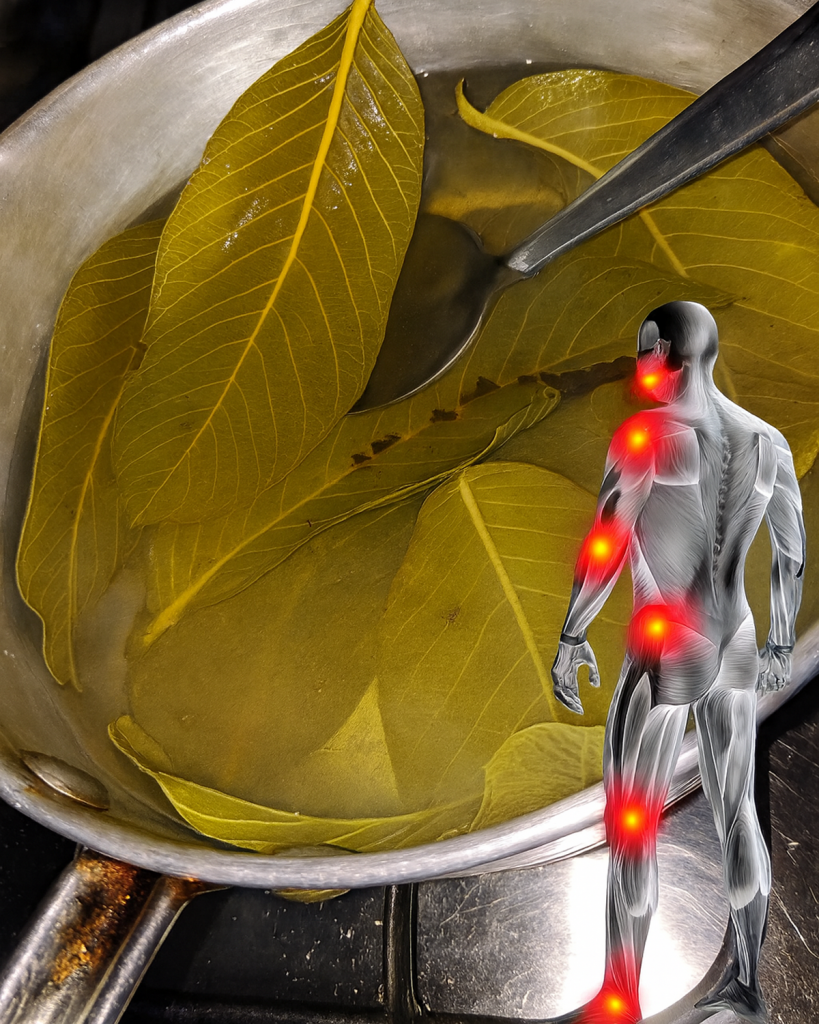
Why Guava Leaf Tea Is So Powerful
Guava leaves contain an abundance of bioactive compounds, including polyphenols, flavonoids, and tannins. These plant chemicals are responsible for its wide-ranging medicinal properties.
Key Nutrients in Guava Leaves
- Quercetin: A flavonoid with strong antioxidant and anti-inflammatory effects.
- Tannins: Natural compounds that support gut health and reduce diarrhea.
- Vitamin C: Helps boost immunity and fight oxidative stress.
- Polyphenols: Aid in balancing blood sugar and reducing cardiovascular risk.
The synergy of these compounds makes guava leaf tea more than just a soothing drink—it’s a holistic health tonic.
7 Health Benefits of Guava Leaf Tea
1. Supports Liver and Kidney Health
Guava leaves contain antioxidants that protect the liver and kidneys from oxidative stress. Traditional medicine uses them to detoxify and strengthen these vital organs, reducing the risk of chronic disease.
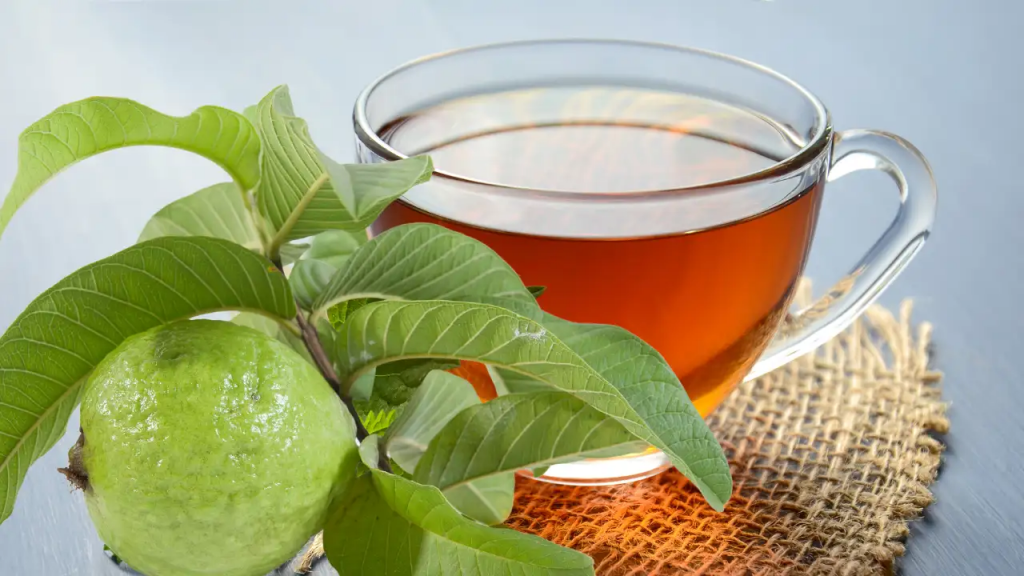
2. Helps Manage Diabetes
Research shows guava leaf tea slows down the absorption of sugars in the gut and improves insulin sensitivity. In Japan, guava tea is officially approved for blood sugar management.
3. Lowers High Cholesterol
Guava leaves inhibit LDL (“bad”) cholesterol buildup while supporting HDL (“good”) cholesterol, reducing cardiovascular risk.
4. Reduces High Blood Pressure
Compounds in guava leaves help relax blood vessels and improve circulation, naturally lowering blood pressure.
5. Relieves Joint Pain and Inflammation
Anti-inflammatory flavonoids like quercetin ease arthritis pain, stiffness, and swelling. Regular use may help reduce flare-ups.
6. Boosts Digestion
Guava leaves combat diarrhea, bloating, and indigestion thanks to their antibacterial and gut-balancing effects.
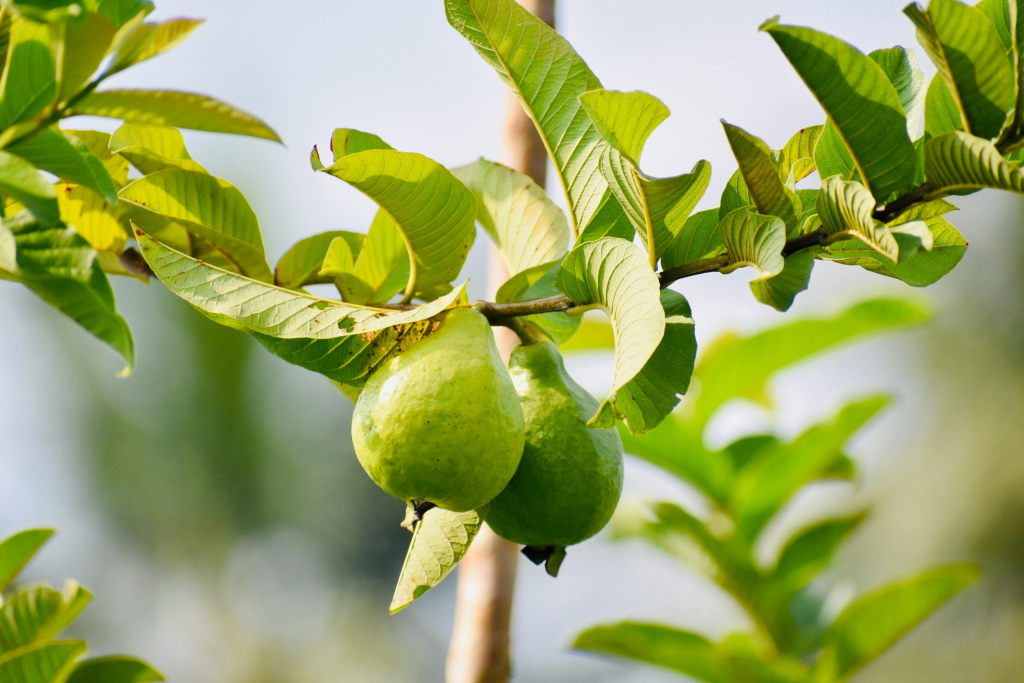
7. Strengthens Immunity
The high vitamin C content and antioxidant profile support the immune system, helping the body fight infections and heal faster.
Quick Reference Table
| Health Concern | Benefit of Guava Leaf Tea |
|---|---|
| Liver & Kidney weakness | Detoxifies and protects organs |
| Diabetes | Stabilizes blood sugar |
| High cholesterol | Reduces LDL, improves HDL |
| High blood pressure | Relaxes blood vessels |
| Joint pain | Reduces inflammation |
| Digestive issues | Controls diarrhea, improves gut health |
| Low immunity | Boosts defenses against illness |
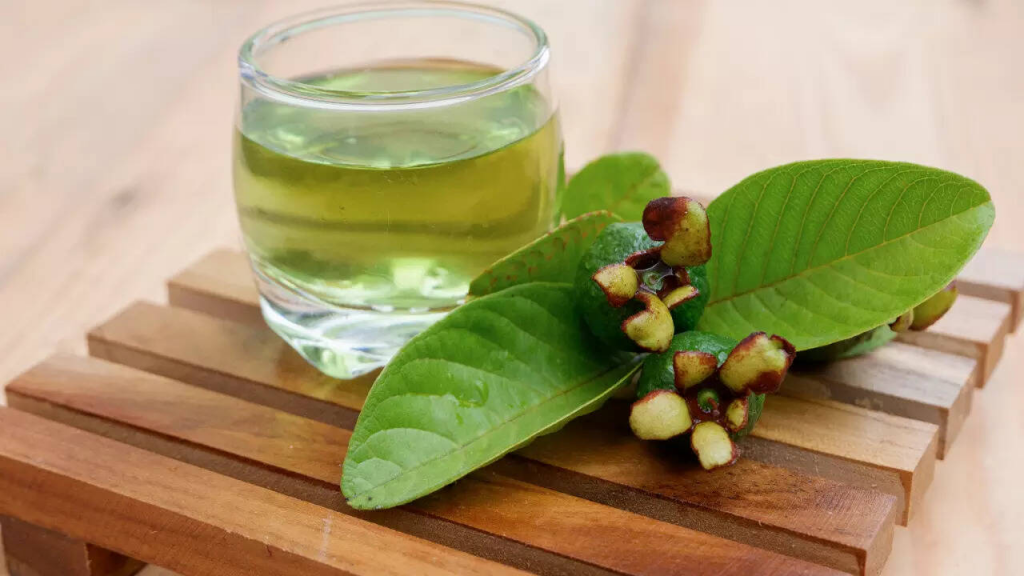
Two Best Ways to Make Guava Leaf Tea
Method 1: Fresh Guava Leaf Tea
Ingredients:
- 10 fresh guava leaves
- 3 cups water
Instructions:
- Wash the leaves thoroughly.
- Bring water to a boil, add leaves.
- Simmer for 10–15 minutes.
- Strain and enjoy warm, plain, or with a little honey.
Best For: Everyday use, detox, and boosting immunity.
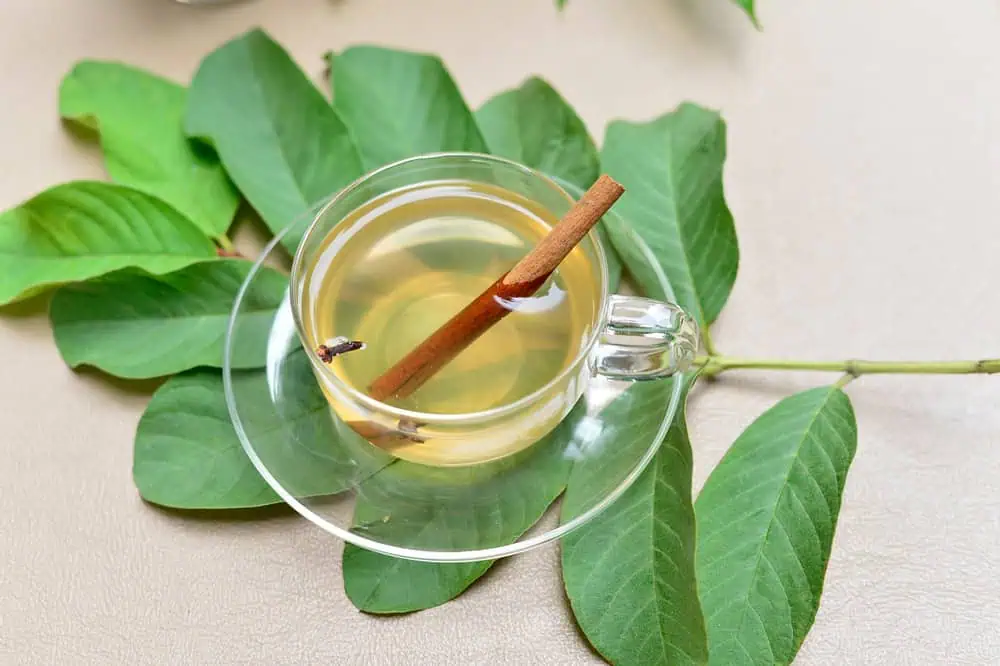
Method 2: Dried Guava Leaf Infusion
Ingredients:
- 2 tablespoons dried guava leaves
- 2 cups boiling water
Instructions:
- Place dried leaves in a teapot.
- Pour boiling water over them.
- Steep for 5–7 minutes.
- Strain and serve.
Best For: Diabetic support, cholesterol management, and digestive relief.
Tip: Drink 1–2 cups daily. Consistency is more effective than occasional use.
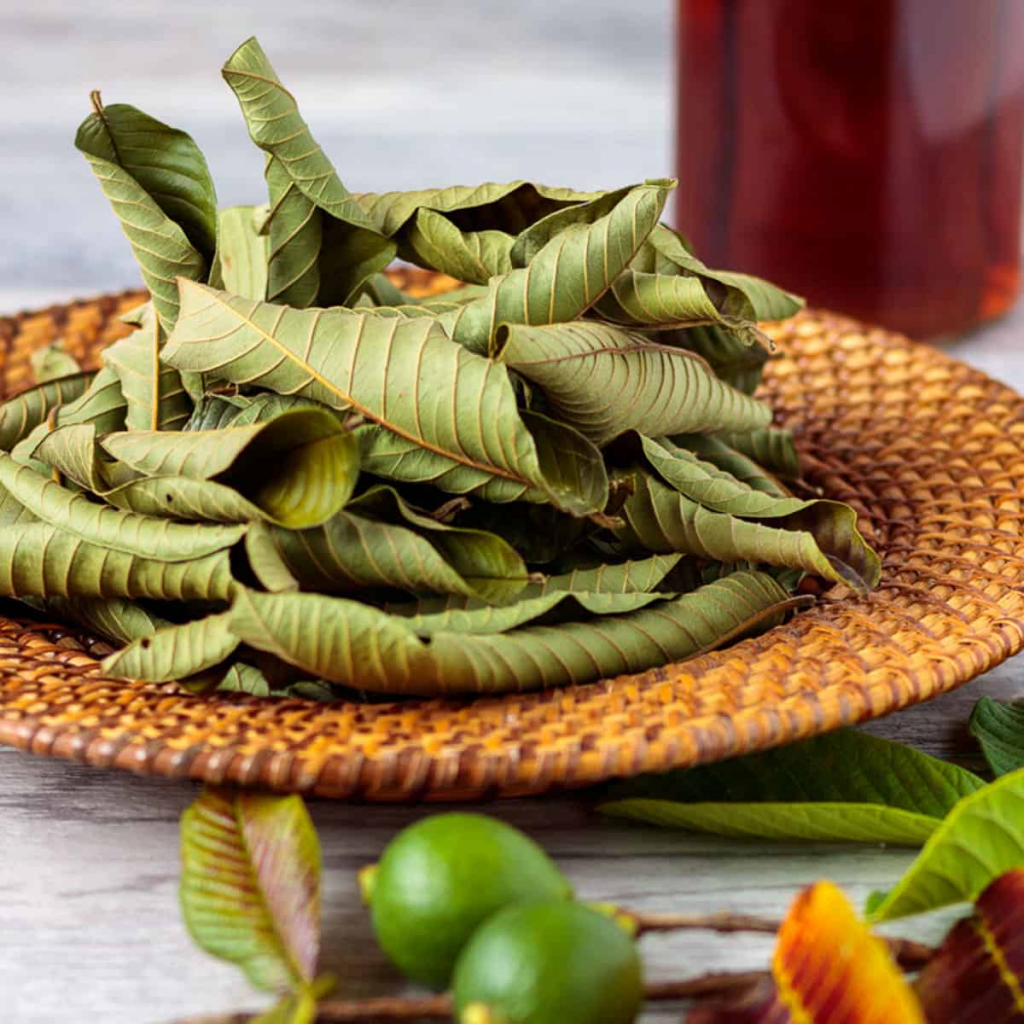
Real-Life Experiences and Case Studies
- Diabetes Support: In a clinical trial published in Nutrition & Metabolism, participants who drank guava leaf tea had significantly reduced post-meal blood sugar levels.
- Joint Pain Relief: A 55-year-old woman with arthritis shared that after drinking guava tea daily for three weeks, her morning stiffness and swelling were noticeably reduced.
- Digestive Aid: A student suffering from recurring diarrhea found relief after incorporating guava leaf tea into his diet for two weeks.
These everyday cases show how versatile and practical guava leaf tea can be for a range of health issues.
Safety and Precautions
Guava leaf tea is generally safe, but:
- Avoid excessive amounts (more than 3 cups daily).
- Pregnant or breastfeeding women should consult their doctor.
- People on blood sugar or blood pressure medications should monitor closely to avoid interactions.
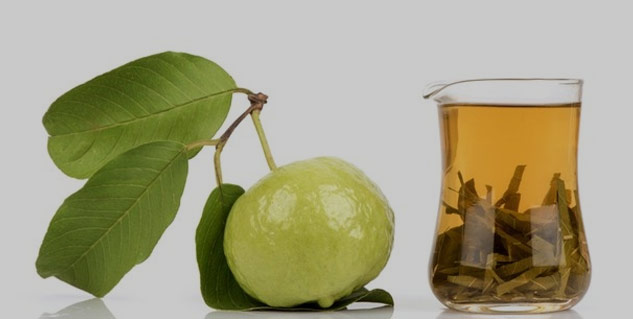
Lifestyle Pairing for Maximum Results
To amplify guava leaf tea benefits:
- Combine with a balanced diet rich in fruits, vegetables, and whole grains.
- Exercise regularly to improve circulation and metabolism.
- Manage stress through yoga, meditation, or deep breathing.
- Stay hydrated to support detoxification.
Conclusion
Can guava leaf tea replace medicine?
No, but it can complement medical treatment under supervision.
How long before results show?
Some benefits like improved digestion can be felt within days, while cholesterol and blood sugar support may take weeks.
Is it safe for daily use?
Yes, 1–2 cups daily is safe for most people.
Bottom line:
A warm cup of guava leaf tea may seem simple, but its impact on health is profound. From supporting liver and kidney function to lowering blood sugar, cholesterol, and blood pressure, this natural remedy is a powerful ally. Prepared fresh or dried, guava leaf tea is an affordable, accessible way to promote wellness every day.
This content is for informational purposes only and does not replace professional medical advice. Always consult your healthcare provider before starting new remedies or supplements.




